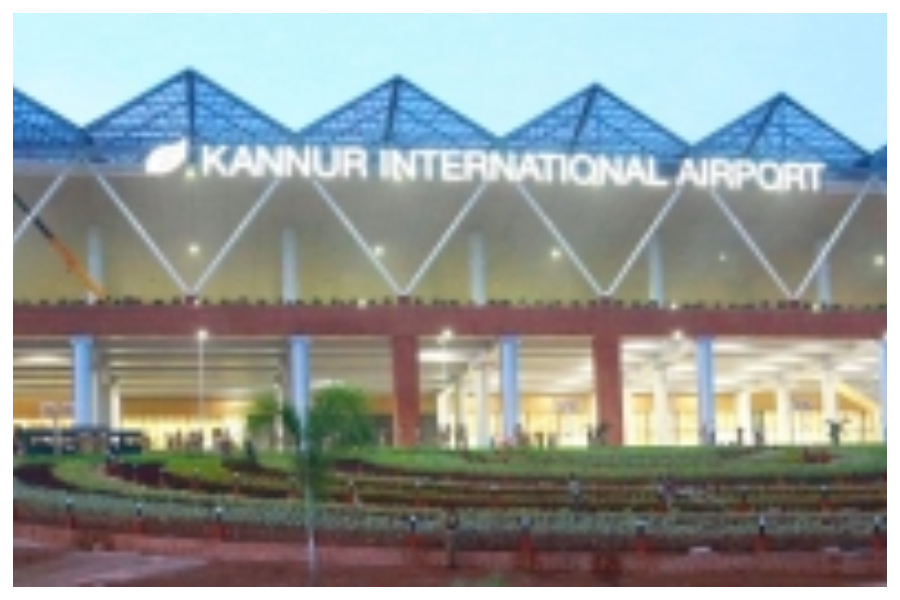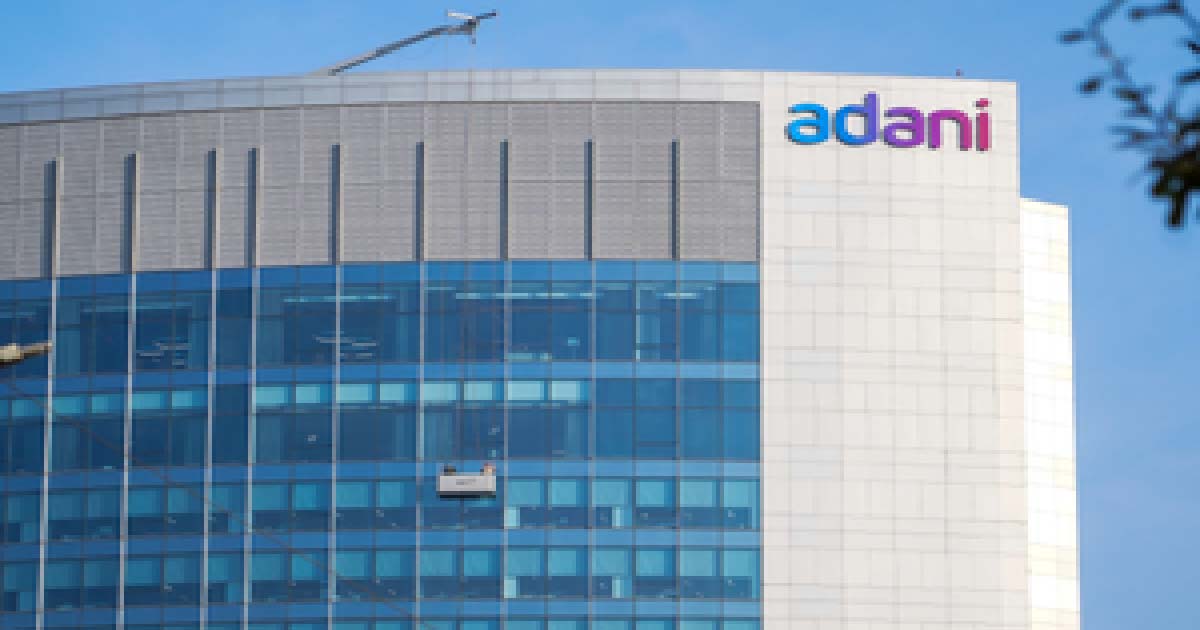Business
Kannur Airport reeling under heavy losses

Kerala’s fourth and the biggest of all airports — the Kannur International Airport Limited ( KIAL) — is reeling under heavy losses.
After four years since opening, the losses have now crossed Rs 300 crore, sources said.
It was inaugurated by Chief Minister Pinarayi Vijayan in 2018 and has turned out to be a big relief for all political leaders hailing from Kannur, including Vijayan and numerous others, who had to earlier take a flight to the state capital from the neighbouring Kozhikode district.
One reason why KIAL is lying in the red is because just as the airport was getting traffic, the Covid pandemic hit and since then it has been struggling despite the best efforts of getting more airlines to operate domestic and international flights from there.
Registered under the Companies Act, KIAL is a government company with the Kerala government holding the maximum shares, accounting for 39 per cent, followed by the Bharat Petroleum Corporation Limited with 16.20 per cent and billionaire Keralite businessman M.A. Yusuf Ali, who owns close to 9 per cent shares.
While sitting in the opposition, the CPI-M had gone hammer and tong against the then Oommen Chandy-led government (2011-16) for not doing anything to increase the runway of the airport to 4,000 metres as a further close to 240 acres of land had to be acquired. But though the Vijayan-led government has now completed six years in office, it has also not been able to increase the runway to 4,000 metres.
Though KIAL is running under losses, it can take heart from the fact that the country’s first airport built under the PPP model — the Cochin International Airport Limited — was opened in 1999, but it started paying dividends only from 2003-04. And by now the total dividend payout has crossed 282 per cent.
Authorities expect that things will change if more and more domestic and international flights begin operations from the the Kannur International Airport.
Business
Centre’s fertiliser supplies to states scale record high of 530 lakh metric tons in April-December

New Delhi, Jan 30: Fertiliser movement from the Centre to the states on Indian Railways, during the first nine months (April-December) of the financial year 2025-26, reached an all-time high with total supplies crossing 530.16 lakh metric tons to surpass the 500 lakh metric ton mark for the first time during this period, an official statement said on Friday.
This represents a 12.2 per cent increase over the corresponding period of FY 2024–25 and is 8.5 per cent higher than the previous record of FY 2023–24, it said.
The Centre has ensured sufficient availability of all major fertilisers across states, including the supply of 350.45 lakh metric tons of urea, against a requirement of 312.40 lakh metric tons in the first nine months (April-December) of the financial year 2025-26. Similarly, in the case of major P&K (phosphorous and potassium) fertilizers including DAP, MOP & NPKS, the total supply reached 287.69 lakh metric tonnes against the requirement of 252.81 lakh metric tonnes, consistently exceeding the assessed requirement and ensuring uninterrupted availability, the statement said.
Faster and smoother movement of fertiliser rakes enabled timely supplies to states, ensuring that farmers did not face any shortages during the critical stages of cultivation. Department of Fertilisers worked in close cooperation with the Ministry of Railways and stated that such coordinated efforts have helped ensure adequate availability of fertilisers across the country, the statement added.
During this period, average rake loading on Indian Railways increased to 72 rakes per day in July 2025, rose to 78 rakes per day in August 2025 and reached 80 rakes per day in September 2025, according to the official figures.
Urea rake movement rose to 10,841 rakes, registering an 8 per cent increase over last year, while P&K fertilisers recorded 8,806 rakes, marking an 18 per cent growth. Enhanced coordination with the Ministry of Railways, ports, state governments, and fertiliser companies ensured seamless and timely supply to states during peak agricultural seasons, the statement said.
Ensuring the timely availability of fertilisers to farmers has remained one of the government’s highest priorities. In this direction, the improved coordination between the Ministry of Railways and the Department of Fertilisers during Kharif 2025 and the ongoing Rabi season was clearly visible at the ground level. The states also took concerted measures to ensure last-mile availability to farmers, the statement added.
Business
JCRA assigns landmark ratings to Adani Ports, Adani Green and Adani Energy Solutions

Ahmedabad, Jan 30: In a significant milestone for the Adani Group’s global credit journey, Japan Credit Rating Agency (JCRA) has initiated ratings of three Portfolio companies — Adani Ports and SEZ (APSEZ), Adani Green Energy Ltd. (AGEL) and Adani Energy Solutions Ltd. (AESL) — assigning long-term foreign currency credit ratings with a ‘Stable’ outlook to all three companies, it was announced on Friday.
Japan’s leading rating agency assigned Adani Ports and Special Economic Zone Ltd. (APSEZ) a A- (Stable) rating, representing a rare breach of the sovereign threshold by an Indian corporate by an international rating agency.
Moreover, Adani Green Energy Ltd. (AGEL) and Adani Energy Solutions Ltd. (AESL) have each been rated BBB+ (Stable). These ratings are at par with India’s sovereign rating of BBB+.
“These landmark ratings reflect the Adani Group’s commitment to disciplined financial management, strengthening balance sheet fundamentals, and world-class execution across our diversified infrastructure platform,” said Jugeshinder Singh, Group CFO, Adani Group.
“They reaffirm the depth and resilience of our business model and reflect the confidence global lenders, institutional investors, and capital markets place in our long-term strategy. This endorsement further strengthens our position as a leading partner in India’s infrastructure buildout and reinforces our commitment to delivering sustainable, high-quality growth,” Singh added.
Adani Ports’ strong rating underlines its strong credit profile, diversified asset base, and resilient cash-flow generation, and places it among a select group of Indian infrastructure companies to achieve an above-sovereign rating from a leading international rating agency.
The ratings also mark one of the first instances of Indian infrastructure platforms being assessed by JCRA at these levels, highlighting the Adani Group’s growing engagement with global rating agencies and its increasing alignment with international credit benchmarks.
APSEZ’s creditworthiness is at par with its subsidiary group, said the ratings agency, citing its superior infrastructure capabilities, consistently strong profitability, stable long-term cash flows, and prudent financial management — positioning the company above India’s sovereign foreign-currency rating, though capped by the country ceiling.
It continues to reinforce its leadership through a diversified portfolio of 15 domestic and 4 international ports, handling nearly 30 per cent of India’s cargo and 50 per cent of container volumes, supported by a comprehensive four-segment integrated logistics platform spanning ports, SEZs, logistics, and marine services.
Adani Ports delivered rapid EBITDA expansion — from Rs 7,566 crore in FY20 to Rs 19,025 crore in FY25, and Rs 11,046 crore in H1 FY26 — while maintaining a conservative 1.8x net-debt-to-EBITDA, long-tenor funding structure, and strong liquidity position.
On the other hand, AESL continues to strengthen India’s energy backbone through rapid expansion in transmission, distribution, smart metering, and cooling solutions — backed by stable, regulated cash flows and strong governance that support its consolidated credit profile, said the ratings agency.
“With a fast-growing network of 26,705 ckm of transmission lines, 97,236 MVA capacity, award-winning distribution reliability, and a rapidly expanding 7.37 million-meter smart metering portfolio, AESL is delivering far superior growth to the sector and redefining benchmarks in efficiency, customer service, and operational performance,” it noted.
With over 16.7 GW of operational capacity as of September 2025 and more than 90 per cent of EBITDA generated from renewables, AGEL has rapidly expanded from just 2.5 GW in FY20 — supported by best-in-class development, superior plant load factors, cost efficiency, and advanced ENOC-driven operations.
“EBITDA growth from Rs 1,855 crore (FY20) to Rs 10,532 crore (FY25) and Rs 6,324 crore in H1 FY26, coupled with improved equity levels, diversified global funding access, and extended 9.4-year average debt maturity, positions AGEL to sustain its ambitious growth pipeline while maintaining financial stability,” said JCRA.
Business
Sensex, Nifty post losses as metal index plunges over 4 pc

Mumbai, Jan 30: The Indian equity markets traded lower early on Friday as the metal stocks plummeted under pressure.
As of 9.30 am, Sensex eased 525 points, or 0.64 per cent, to reach 82,040, and Nifty lost 159 points, or 0.63 per cent, to settle at 25,259.
Main broad-cap indices posted higher losses than the benchmark indices, as the Nifty Midcap 100 declined 0.81 per cent, and the Nifty Smallcap 100 lost 1.19 per cent.
All sectoral indices were trading in the red except FMCG, pharma and consumer durables. Nifty metal and IT were down 4.28 per cent and 1.41 per cent, respectively.
Immediate support lies at 25,250-25,300 zone, while resistance is anchored at 25,550–25,600 zone, market watchers said.
Analysts said that geopolitical issues continue to plague global trade with continuous threats of tariff weaponisation by US President Donald Trump. The spike in Brent crude to near $70 is a headwind for Indian macros in general and industries that use oil as inputs, in particular.
These headwinds are likely to be countered by the positive message from the Economic Survey that projects GDP growth of 6.8 per cent to 7.2 per cent growth in FY 27.
As India is headed for around 10 per cent nominal GDP growth in FY27, 15 to 17 per cent earnings growth can be expected in FY27, imparting resilience to the market.
From early 2027 onwards, India’s success in diversification of its export market away from the US will gain momentum with the India- EU trade deal getting implemented, they added.
Asia-Pacific markets mostly traded lower in the morning session after Trump said he will announce his choice for the next head of the US Federal Reserve on Friday.
In Asian markets, China’s Shanghai index eased 1.19 per cent, and Shenzhen lost 0.96 per cent, Japan’s Nikkei declined 0.35, and Hong Kong’s Hang Seng Index lost 1.66 per cent. South Korea’s Kospi added 0.59 per cent.
The US markets ended largely in the green overnight as Nasdaq lost 0.72 per cent. The S&P 500 eased 0.13 per cent, and the Dow gained 0.11 per cent.
On January 29, foreign institutional investors (FIIs) net sold equities worth Rs 394 crore, while domestic institutional investors (DIIs) were net buyers of equities worth Rs 2,634 crore.
-

 Crime3 years ago
Crime3 years agoClass 10 student jumps to death in Jaipur
-

 Maharashtra1 year ago
Maharashtra1 year agoMumbai Local Train Update: Central Railway’s New Timetable Comes Into Effect; Check Full List Of Revised Timings & Stations
-

 Maharashtra1 year ago
Maharashtra1 year agoMumbai To Go Toll-Free Tonight! Maharashtra Govt Announces Complete Toll Waiver For Light Motor Vehicles At All 5 Entry Points Of City
-

 Maharashtra1 year ago
Maharashtra1 year agoFalse photo of Imtiaz Jaleel’s rally, exposing the fooling conspiracy
-

 National News1 year ago
National News1 year agoMinistry of Railways rolls out Special Drive 4.0 with focus on digitisation, cleanliness, inclusiveness and grievance redressal
-

 Maharashtra1 year ago
Maharashtra1 year agoMaharashtra Elections 2024: Mumbai Metro & BEST Services Extended Till Midnight On Voting Day
-

 National News1 year ago
National News1 year agoJ&K: 4 Jawans Killed, 28 Injured After Bus Carrying BSF Personnel For Poll Duty Falls Into Gorge In Budgam; Terrifying Visuals Surface
-

 Crime1 year ago
Crime1 year agoBaba Siddique Murder: Mumbai Police Unable To Get Lawrence Bishnoi Custody Due To Home Ministry Order, Says Report






















